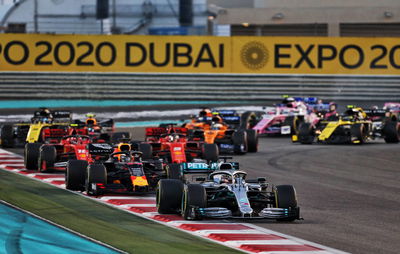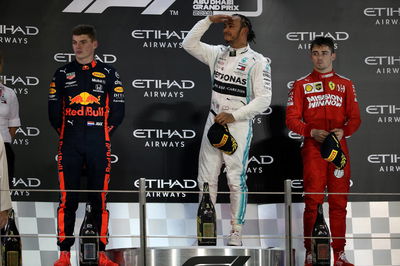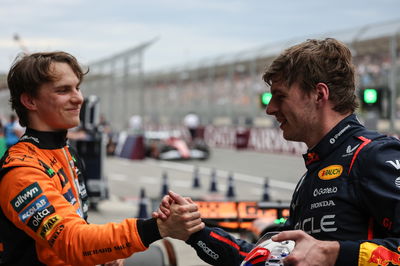F1 manufacturers convinced on engine performance convergence
Formula 1 manufacturer chiefs are convinced keeping the current engine rules stable going into 2021 will provide closer racing through performance convergence despite the ongoing Mercedes dominance.
With Mercedes sweeping to a historic six consecutive drivers’ and constructors’ world titles in F1 since the introduction of the V6 Hybrid power units, the sport has been targeting methods to provide equal competition and close the performance gaps between teams.

Formula 1 manufacturer chiefs are convinced keeping the current engine rules stable going into 2021 will provide closer racing through performance convergence despite the ongoing Mercedes dominance.
With Mercedes sweeping to a historic six consecutive drivers’ and constructors’ world titles in F1 since the introduction of the V6 Hybrid power units, the sport has been targeting methods to provide equal competition and close the performance gaps between teams.
While the sport is set for one of the biggest shake-ups in its history in 2021 with the introduction of team budget caps, new aerodynamic regulations and a restructuring of revenue to provide a fairer share to all teams as part of large changes, the biggest factor which will avoid any major alteration is the power unit rules and regulations.
F1 will retain the V6 Hybrid blueprint and is pushing to standardise numerous parts in order to help cut costs for manufacturers.
Despite engine performance being considered the biggest differential currently in F1, all three team principals at Mercedes, Ferrari and Renault are certain stable rules will allow for greater competition.
“Over the long-term [the] trend on engine performance is that it will stabilise,” Mercedes boss toto Wolff said. “I think we have seen outliers in engine performance, we have seen very good races with Ferrari, we have seen Renault doing a step up and then the same way that has stretched us so I think, looking over many years’ cycle, these gains will get smaller, like in any mature industry, the marginal gains tend to decrease and I have no doubt that this will happen.
“I think that the stability of regulations is showing that actual performance is converging which is good for the sport,” Renault chief Cyril Abiteboul added. “I continue to believe that there are some breakthroughs to come that will come with new processes, with new materials, so that’s interesting, so you should watch this space and see what it still has to offer.
“Our engineers keep on having lots of ideas and that’s great to see. We’ve recruited a lot of young guys, coming from university. They are not necessarily passionate about Formula 1 but I can tell you that they are passionate about doing what they are doing in the field of the internal combustion engine and power in general and that’s good and extremely refreshing so I think it’s good that Formula 1 keeps on having this field of innovation for engines in general.”
With Ferrari acting as the closest rival to Mercedes in the V6 Hybrid era, including an increasing belief the Italian manufacturer has started to outperform its German rivals, team boss Mattia Binotto is keen to keep hold of this trend while backing the ‘freezing’ of engine parts which don’t provide clear performance gains against opponents.
“Will convergence happen? I think we are all convinced on that. The reason that we are all convinced is that the rules that we have all accepted are defined,” Binotto said. “There will be lines of restriction and therefore we believe that there will no longer be the necessity to develop as we are developing today.
“There will even be some freezing opportunities, also the power unit and the fact that we are starting freezing some of the components is that believe that there is only a very marginal benefit at some stage in developing and it’s good for the sustainability to start freezing and reducing the dyno activity so yes, we are all convinced that it will come to a convergence. I think we are already converging and in the next period that will happen.”











